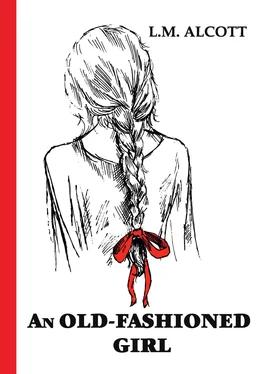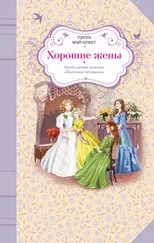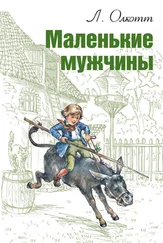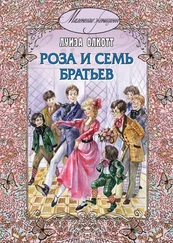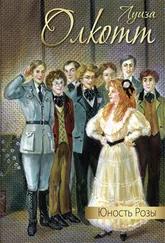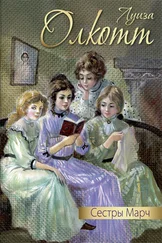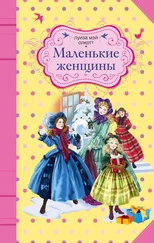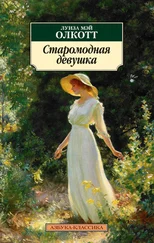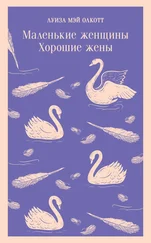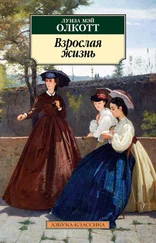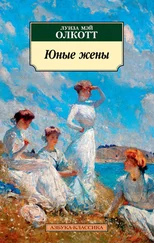“That’s because it came out that Carrie used to forge excuses in her mamma’s name, and go promenading with her Oreste, when they thought her safe at school. Oh, wasn’t she a sly minx?” cried Belle, as if she rather admired the trick.
“I think a little fun is all right; and there’s no need of making a talk, if, now and then, someone does run off like Carrie. Boys do as they like; and I don’t see why girls need to be kept so dreadfully close. I’d like to see anybody watching and guarding me!” added another dashing young lady.
“It would take a policeman to do that, Trix, or a little man in a tall hat,” said Fanny, slyly, which caused a general laugh, and made Beatrice toss her head coquettishly.
“Oh, have you read ‘The Phantom Bride’? It’s perfectly thrilling! There’s a regular rush for it at the library; but some prefer ‘Breaking a Butterfly.’ Which do you like best?” asked a pale girl of Polly in one of the momentary lulls which occurred.
“I haven’t read either.”
“You must, then. I adore Guy Livingston’s books, and Yates’s. ‘Ouida’s’ are my delight, only they are so long, I get worn out before I’m through.”
“I haven’t read anything but one of the Muhlbach novels since I came. I like those, because there is history in them,” said Polly, glad to have a word to say for herself.
“Those are well enough for improving reading; but I like real exciting novels; don’t you?”
Polly was spared the mortification of owning that she had never read any, by the appearance of Monsieur, a gray-headed old Frenchman, who went through his task with the resigned air of one who was used to being the victim of giggling schoolgirls. The young ladies gabbled over the lesson, wrote an exercise, and read a little French history. But it did not seem to make much impression upon them, though Monsieur was very ready to explain; and Polly quite blushed for her friend, when, on being asked what famous Frenchman fought in our Revolution, she answered Lamartine, instead of Lafayette.
The hour was soon over; and when Fan had taken a music lesson in another room, while Polly looked on, it was time for recess. The younger girls walked up and down the court, arm in arm, eating bread and butter; others stayed in the schoolroom to read and gossip; but Belle, Trix, and Fanny went to lunch at a fashionable ice cream saloon nearby, and Polly meekly followed, not daring to hint at the gingerbread grandma had put in her pocket for luncheon. So the honest, brown cookies crumbled away in obscurity, while Polly tried to satisfy her hearty appetite on one ice and three macaroons.
The girls seemed in great spirits, particularly after they were joined by a short gentleman with such a young face that Polly would have called him a boy, if he had not worn a tall beaver. Escorted by this impressive youth, Fanny left her unfortunate friends to return to school, and went to walk, as she called a slow promenade down the most crowded streets. Polly discreetly fell behind, and amused herself looking into shopwindows, till Fanny, mindful of her manners, even at such an interesting time, took her into a picture gallery, and bade her enjoy the works of art while they rested. Obedient Polly went through the room several times, apparently examining the pictures with the interest of a connoisseur, and trying not to hear the mild prattle of the pair on the round seat. But she couldn’t help wondering what Fan found so absorbing in an account of a recent German, and why she need promise so solemnly not to forget the concert that afternoon.
When Fanny rose at last, Polly’s tired face reproached her; and taking a hasty leave of the small gentleman, she turned homeward, saying, confidentially, as she put one hand in Polly’s muff, “Now, my dear, you mustn’t say a word about Frank Moore, or papa will take my head off. I don’t care a bit for him, and he likes Trix; only they have quarrelled, and he wants to make her mad by flirting a little with me. I scolded him well, and he promised to make up with her. We all go to the afternoon concerts, and have a gay time, and Belle and Trix are to be there today; so just keep quiet, and everything will be all right.”
“I’m afraid it won’t,” began Polly, who, not being used to secrets, found it very hard to keep even a small one.
“Don’t worry, child. It’s none of our business; so we can go and enjoy the music, and if other people flirt, it won’t be our fault,” said Fanny, impatiently.
“Of course not; but, then, if your father don’t like you to do so, ought you to go?”
“I tell mamma, and she don’t care. Papa is fussy, and grandma makes a stir about every blessed thing I do. You will hold your tongue, won’t you?”
“Yes; I truly will; I never tell tales.” And Polly kept her word, feeling sure Fan didn’t mean to deceive her father, since she told her mother everything.
“Who are you going with?” asked Mrs. Shaw, when Fanny mentioned that it was concert day, just before three o’clock.
“Only Polly; she likes music, and it was so stormy I couldn’t go last week, you know,” answered Fan; adding, as they left the house again, “If anyone meets us on the way, I can’t help it, can I?”
“You can tell them not to, can’t you?”
“That’s rude. Dear me! Here’s Belle’s brother Gus – he always goes. Is my hair all right, and my hat?”
Before Polly could answer, Mr. Gus joined them as a matter of course, and Polly soon found herself trotting on behind, feeling that things were not “all right,” though she didn’t know how to mend them. Being fond of music, she ignorantly supposed that everyone else went for that alone, and was much disturbed by the whispering that went on among the young people round her. Belle and Trix were there in full dress; and, in the pauses between different pieces, Messrs. Frank and Gus, with several other “splendid fellows,” regaled the young ladies with college gossip, and bits of news full of interest, to judge from the close attention paid to their eloquent remarks. Polly regarded these noble beings with awe, and they recognized her existence with the condescension of their sex; but they evidently considered her only “a quiet little thing,” and finding her not up to society talk, blandly ignored the pretty child, and devoted themselves to the young ladies. Fortunately for Polly, she forgot all about them in her enjoyment of the fine music, which she felt rather than understood, and sat listening with such a happy face, that several true music-lovers watched her smilingly, for her heart gave a blithe welcome to the melody which put the little instrument in tune. It was dusk when they went out, and Polly was much relieved to find the carriage waiting for them, because playing third fiddle was not to her taste, and she had had enough of it for one day.
“I’m glad those men are gone; they did worry me so talking, when I wanted to hear,” said Polly, as they rolled away.
“Which did you like best?” asked Fanny, with a languid air of superiority.
“The plain one, who didn’t say much; he picked up my muff when it tumbled down, and took care of me in the crowd; the others didn’t mind anything about me.”
“They thought you were a little girl, I suppose.”
“My mother says a real gentleman is as polite to a little girl as to a woman; so I like Mr. Sydney best, because he was kind to me.”
“What a sharp child you are, Polly. I shouldn’t have thought you’d mind things like that,” said Fanny, beginning to understand that there may be a good deal of womanliness even in a little girl.
“I’m used to good manners, though I do live in the country,” replied Polly, rather warmly, for she didn’t like to be patronized even by her friends.
Читать дальше
